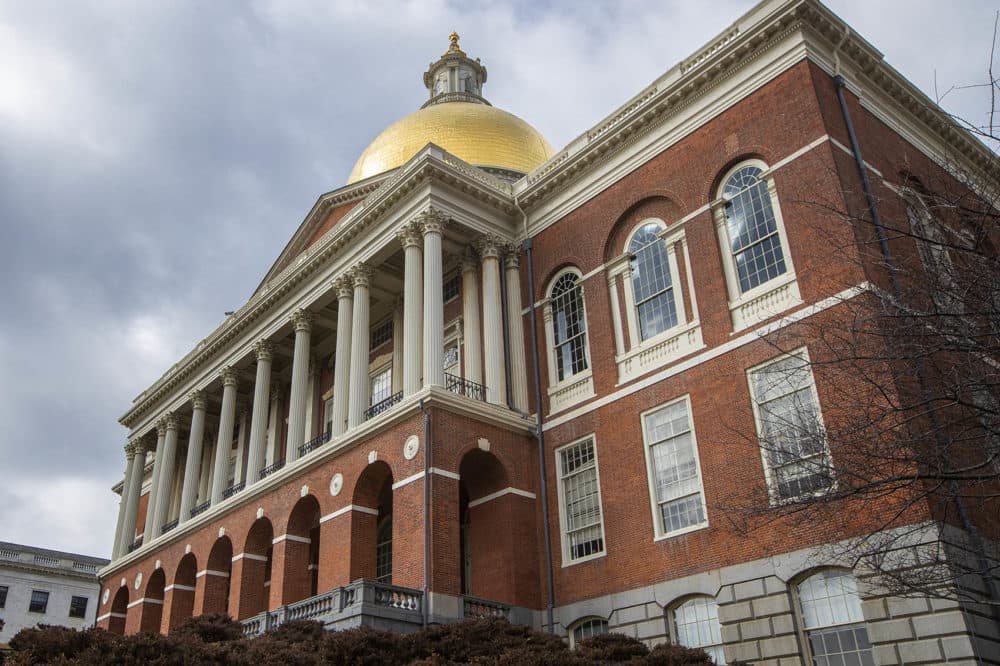Advertisement
Mass. House OKs $1.3 Billion To Help Cities And Towns Confront Climate Change

The Massachusetts House crossed one of Speaker Robert DeLeo's priority bills off its list Wednesday with the unanimous passage of a bill to establish a new grant program to help cities and towns confront climate change impacts and to borrow more than $1 billion to pay for it.
The bill (H 3987) would create the GreenWorks infrastructure program under the Executive Office of Energy and Environmental Affairs to help communities address things like the threat of rising seas and floodwaters, and the damage that's already been done. The bill authorizes the state to borrow $1.3 billion and to dole out $100 million for GreenWorks each year for a decade.
DeLeo, whose coastal district covers Winthrop and parts of Revere, first pitched the program in February during an event at Greentown Labs in Somerville and had said he wanted the House to vote on it before vacating Beacon Hill for the traditional August break.
"GreenWorks builds on a long-standing House approach to provide concrete tools directly to cities and towns that result in both immediate and long-lasting positive effects," DeLeo said in a statement. "This forward-looking investment helps Massachusetts cities and towns build resilient communities, lower long-term operating costs and cut greenhouse gases while creating jobs for workers across the Commonwealth."
The bill establishes a competitive grant program under which municipalities could apply each year for funding for specific projects. Two or more towns would be able to apply jointly for money to pay for regional resilience efforts.
"GreenWorks was meant to be, and is, broad and very flexible. It is to allow each community to identify their problems and use GreenWorks dollars to solve their issues and their problems," Rep. Thomas Golden, chairman of the Committee on Telecommunication, Utilities and Energy and the bill's chief sponsor, said on the House floor Wednesday afternoon.
Despite the state's already high debt levels, the House bill tacks the cost of the program onto the state's credit card, rather than paying for it with a tax increase, as Gov. Charlie Baker has proposed for a similar program. The planned borrowing would also be executed outside of the state's bond cap, under the bill.
Rep. David Vieira, the ranking minority member of the House Bonding Committee and a member of the state's Capital Debt Affordability Committee, sought with an amendment to strip away the exemption and make the GreenWorks borrowing subject to the state's debt limit.
Advertisement
"To say that we are going to go out and bond a billion dollars over 10 years, $100 million a year, and actually exempt that billion dollars from the bond cap, I think is going to raise concerns with our bond rating agencies," he said.
Vieira reminded his fellow reps that they "all read the same articles that I did" when S&P Global Ratings lowered its rating for Massachusetts bonds to AA from AA+ in 2017, citing the state's failure to follow its policies for rebuilding its stabilization fund.
"So I felt that I would be remiss ... to not come before the House and at least warn us that if we are going to exempt a billion dollars worth of bonded authorization from the Chapter 29 bond cap, that we may be reading another article next year about the bond rating of this commonwealth," the Falmouth Republican said.
The bill passed 157-0 and most every representative who spoke from the podium on Wednesday highlighted the fact that the bill provides opportunities for communities of all sizes, geographies and financial situations.
Rep. Theodore Speliotis said he believes "stronger than anything else" that climate change is the number one issue his constituents care about.
"They care about their taxes, they care about their roads, they care about many things; but when you ask them or when I'm asked in my district or here what are people talking about, they're talking about the changes in our climate and the effects — and all in the negative," he said on the floor Wednesday. "In the last month we have been barraged to a point like never in our lifetime — people fearful of going to the beaches, people fearful of their summer homes, they're fearful of their own property — and each and every year we spend more time recouping from the damages."
The bill now goes to the Senate for consideration. Because he filed it with the Senate, Baker's similar bill (S 10) could be bound for the Senate if it emerges from committee. Asked this month whether she favors DeLeo's borrowing approach or Baker's tax hike plan, Senate President Karen Spilka did not show her cards.
"We will take a look, I will discuss this with my chairs and the other senators," she said.